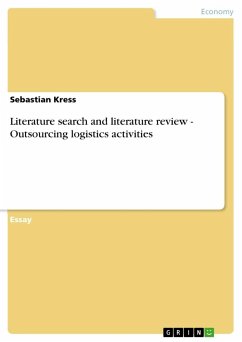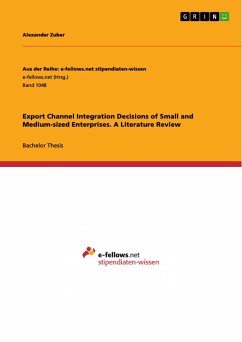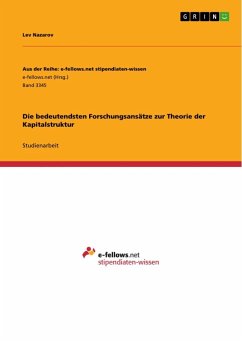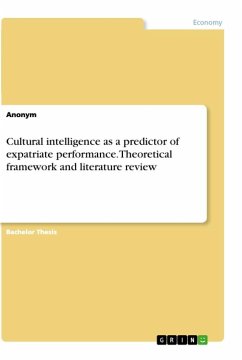Essay from the year 2012 in the subject Business economics - General, grade: 2, Heriot-Watt University Edinburgh (School of Language and Management), language: English, abstract: The business world offers numerous examples of companies sourcing their activities out. Thisliterature review will put emphasis on companies that engage with a third-party that providelogistics services to them. Third-party logistics (TPL), which can be perceived as outsourcinglogistics, has been receiving considerable amount of attention within the academic world (e.g. Lieband Bentz, 2004, 2005; Lieb and Randall, 1999; Cooper and Johnstone, 1990; Fernie, 1989;Marasco, 2007). This trend has been dominating both the business world and the academic worldsince the 1980s (Stalk, Evans and Shulman, 1992; McKinnon, 1999) and yet, this topic doesn'tseems to be exhausted. While Porter (1985) illustrate the Value Chain, he argues thatorganisations need to assess their activities in their value chain and evaluate whether they create acompetitive advantage by executing this activity in-house. If they do not achieve so, he continuesby suggesting outsourcing that activity. Hsiao et al. (2009) distinguish between core businessoutsourcing and non-core business outsourcing. A firm's core business or core competencies canbe designated as "the collective learning in the organization, especially how to coordinate diverseproduction skill and integrate multiple streams of technologies" (Prahalad and Hamel, 1990).Core business outsourcing can be understand as activities such as product design, development,manufacturing, marketing, and sales (Facanha and Horvath, 2005), and research has proven thatthis business conduct may have positive effects in order to be responsiveness to inconsistencies indemand (Dabhilkar and Bengtsson, 2008; Jiang et al, 2007). The non-core business inmanufacturing industry incorporates activities such as IT, HRM, accounting and logistic services(Hsiao et al, 2009). However, this literature review will not focus on outsourcing core business butwill concentrate on outsourcing non-core business; in particular outsourcing of logistics activities toTPL. Initially, this paper will draw attention to essential definitions that have been published overthe years. This will be followed by an examination to discover the driving forces for this field. Themain body will be closing with the highlighting the risk that are associate with outsourcing.
Hinweis: Dieser Artikel kann nur an eine deutsche Lieferadresse ausgeliefert werden.
Hinweis: Dieser Artikel kann nur an eine deutsche Lieferadresse ausgeliefert werden.








